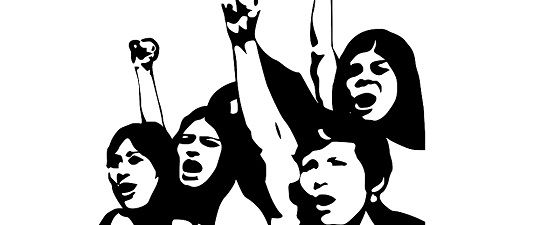Back to: GOVERNMENT SS1
Welcome to class!
In today’s class, we will be talking about factors working against the success of pressure groups. Enjoy the class!
Factors Working Against the Success of Pressure Groups

Most pressure groups have a variety of goals and make a variety of compromises as part of their on-going negotiations and campaigning. For some groups, success may just be ensuring that rival groups do not achieve some of their objectives.
Political culture:
This is the extent to which pressure group activity is regarded as legitimate. In Britain, it is generally accepted that pressure groups have a role to play in the political process.
Opposing groups:
These can cancel each other out – or at least reduce the impact of each other’s activities. Obvious examples might be the pro- and anti-abortion campaigns or the pro- and anti-hunting groups.
The attitude of the government
This is the extent to which decision making is open to influence. Under the Conservative government from 1979, particularly under Mrs Thatcher, there was less likelihood of pressure group influence being successful – the government often pressed ahead on its convictions regardless of outside opinion, for example over NHS reform.
The election of the Labour government in May 1997 was seen by many as opening up the political system to greater influence by pressure groups.
In general, governments will be more receptive to pressure on policies which they favour, and from groups which share their basic values. For example, the Institute of Directors gained significant influence during the Conservative years. Governments are also more likely to be open to influence on issues which are peripheral to their main policies rather than central to them.
Dangers posed by pressure groups
- They are quite biased in favour of their interest. Campaigns by pressure groups may not present a balanced argument e.g. Fathers 4 Justice may not understand that the courts and mothers are trying to achieve the best outcome for their kids.
- Members are often very passionate, they may resort to undesirable tactics like violence or criminal behaviour to promote their cause e.g. Animal activists have damaged scientific animal testing labs and threatened workers and their families, members of Countryside Alliance and Fathers 4 Justice have demonstrated in The House of Commons.
- Opinions held by pressure groups may only help a small minority of the population
Comparison between a pressure group and political party
Both political parties and pressure groups seek to influence Government, but it is their methods, organisation and ultimate goals that set them apart. Political parties put up candidates for election to the legislature, and by doing so they seek to form a government (or if this is unrealistic, say for a minor party, to influence the current government.). Pressure groups, on the other hand, do not usually put up candidates for election, although this is not always the case. For political parties, however, their main (and usually only) aim is to get as many candidates elected as possible.
Parties and pressure groups also differ in terms of the overall aim. Political parties produce manifestos that cover broad policy areas, such as Health, Education, and Defence, the idea being that citizens will vote for that party because of what the reforms they want to implement to improve the country. Pressure groups, however, usually have a single policy area that they focus on, like the environment, animal rights, or saving a local school from closure. They will not usually create a manifesto, although general aims will be laid out in a mission statement of sorts.
Unlike pressure groups which are selfish and concerned with the welfare of their members only, political parties want to assume direct responsibility for these policies by seeking to monopolise or share with other parties positions of political power.
We talk of interest group articulation, that is to say, that groups express demands and attitudes in the political system and party aggregation, how these demands and attitudes are put into a wider and coherent programme and presented to the electorate. Thus, political parties may be seen as perverting selfish group interest from dominating and distorting the decision-making process.
Political parties perform an integrative process of the entire state and do not use any form of divisive tendencies in achieving their objectives. Whereas the political culture of societies determines the shape, intensity and direction of pressure group activity. Pressure groups are said to be narrow-minded, parochial, selfish and insensitive to the cause of the majority whereas the political parties must solicit, negotiate and obtain the mandate, cooperation, solidarity and support of the majority to remain in government.
Evaluation
- What are the factors that can militate against the success of a pressure group?
- Describe how opposing pressure groups can negatively impact each other’s success.
- Why is the attitude of government important to the success of pressure groups?
- Enumerate four (4) dangers posed by pressure groups.
- Differentiate between pressure groups and political parties.
We hope you enjoyed the class.
Should you any further question, feel free to ask in the comment section below and trust us to respond as soon as possible.
